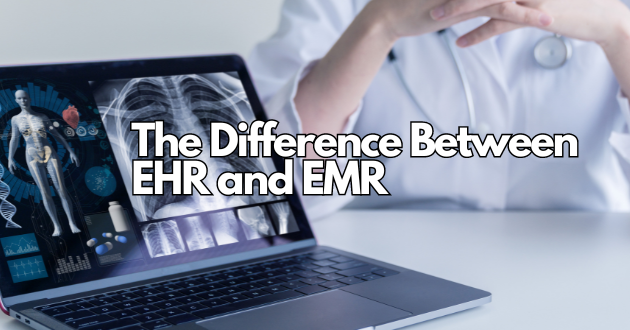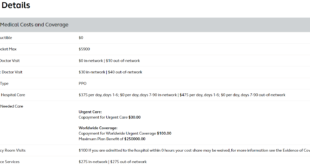The difference between EHR and EMR is a topic of paramount importance in the ever-evolving landscape of healthcare technology. In this age it is becoming increasingly important, for professionals, institutions and patients to grasp these differences.
What are EHR Systems?
Electronic Health Records (EHR) systems are platforms used to store a patients health information. Unlike paper records EHRs are flexible and can be updated instantly. They contain a patients history, including diagnoses, medications, treatment plans, immunization records, allergies, radiology images and laboratory test results.
EHRs are created with the goal of allowing different healthcare providers to access them easily ensuring that a patients health information remains consistent and current across care settings.
What are EHR’s in Healthcare?
In the field of healthcare, electronic health records (EHRs) have an impact. They act as a storage system, for information ensuring that doctors, nurses and other healthcare professionals can access the same set of data.
This unified approach prevents any inconsistencies that may occur when multiple records are kept. Additionally EHRs in healthcare enable communication, between healthcare providers, pharmacies, laboratories and even patients using patient portals.
What are the Benefits of EHR?
There are benefits, to using Electronic Health Records (EHRs);
- Improved Patient Care; Having all the necessary information in one place allows healthcare providers to make decisions ultimately leading to better patient care.
- Efficiency; EHRs minimize the need for record keeping and excessive paperwork streamlining processes and saving time.
- Accessibility; EHRs can be accessed from anywhere ensuring that crucial patient data is readily available during emergencies.
- Cost Savings; Over time implementing EHRs can lead to cost reductions associated with paper records, storage expenses and administrative tasks.
- Enhanced Security; Digital records provide added security benefits through encryption backup measures and multiple layers of protection.
Overall utilizing EHRs brings advantages such as improved patient care, increased efficiency, accessibility of data in situations cost savings over time and enhanced security measures, for protecting sensitive information.
Do Hospitals Use EMR or EHR?
In the healthcare industry both EMR and EHR systems have their roles. Hospitals generally prefer EHRs. The main reason, for this preference is the nature of EHRs.
They offer an overview of a patients health encompassing not the treatments or diagnoses from one specific visit or hospital but also considering the bigger picture. This comprehensive data plays a role, for hospitals as it facilitates care among different departments and even external healthcare providers.
Contents of Chart Note in an EHR
A progress note, commonly known as a chart note is a written record that provides information, about the patients condition or progress. In a health record (EHR) a chart note usually includes;
- Subjective; The patients reported complaints or concerns.
- Objective; The observations made by the healthcare provider or the results of tests.
- Assessment; The healthcare providers diagnosis or understanding of the patients condition.
- Plan; The proposed treatment options or recommended steps.
Common Functions of an EHR
Electronic Health Records (EHRs) come with a range of features that help streamline healthcare processes;
- Prescription Management; This feature enables healthcare providers to send prescriptions to pharmacies making it convenient for patients to receive their medications.
- Appointment Scheduling; Patients have the ability to easily book, reschedule or cancel appointments using EHRs ensuring flexibility and convenience, in managing their healthcare needs.
- Billing and Invoicing; EHRs automate the billing process by generating invoices based on the treatments provided making it easier for both patients and providers to handle matters.
- Telehealth Integration; With integration EHRs facilitate virtual consultations, allowing patients to connect with their healthcare providers remotely for advice or follow ups.
- Lab Integration; EHRs enable integration with laboratories so that lab results can be directly incorporated into the patients records eliminating the need for entry and reducing errors.
- Patient Portals; EHRs provide patient portals where individuals can access their records view test results and communicate securely with their healthcare providers whenever needed.
These functionalities within EHR systems contribute significantly towards improving efficiency, in healthcare delivery while enhancing engagement and satisfaction.
Cost of Implementing an EHR System
Introducing a health record (EHR) system requires a commitment. The upfront expenses encompass licensing the software acquiring hardware infrastructure, like servers or cloud storage training the staff and accounting for productivity interruptions during the transition period.
Nevertheless the lasting advantages of implementing EHR such, as decreased staffing expenses, minimized record keeping mistakes and improved billing effectiveness generally validate the investment.
Cons of an EHR
Although electronic health records (EHRs) provide benefits they also come with challenges;
- Learning Curve; The staff requires training. There may be some resistance, to adapting to systems.
- Initial Costs; The upfront expenses can pose a barrier for healthcare practices.
- Maintenance; Regular updates and potential troubleshooting are necessary to keep the EHR systems running smoothly.
- Interoperability Issues; Some EHR systems do not integrate seamlessly with health tools causing communication problems.
It’s important to consider these challenges, alongside the advantages of using EHRs.
Challenges of Implementing an EHR
Moving to an Electronic Health Record (EHR) system comes with its share of challenges;
- Data Migration; The process of transferring data from paper or another digital system can be quite time consuming. Require attention.
- Staff Training; It is crucial to ensure that all members of the staff those who may not be as familiar, with technology feel comfortable and confident in using the system.
- Workflow Adjustments; Adapting to workflows can potentially disrupt established routines and require some adjustment from everyone involved.
- Financial Considerations; Budgeting for the transition including expenses that may arise along the way can pose a challenge.
Navigating through these hurdles requires planning and effective communication, among team members.
When Did EHR Become Mandatory?
The drive to encourage the adoption of health records (EHR), in the United States was greatly influenced by the enactment of the Health Information Technology for Economic and Clinical Health (HITECH) Act, in 2009.
This legislation provided incentives for healthcare providers to implement and exhibit the ” use” of EHRs. By establishing requirements and timelines this act aimed to enhance healthcare quality, safety and efficiency by promoting the use of health information technology.
When Did EHR Start?
The concept of storing information first emerged in the 1960s. However it was not, until the 1990s and early 2000s that electronic health records (EHRs) gained traction, driven by technological advancements and a growing need to modernize healthcare practices.
Do EHRs Improve Data Collection?
Certainly. Electronic Health Records (EHRs) offer an organized method, for gathering, storing and examining information. By utilizing predefined data entry fields and the capability to connect with health resources EHRs guarantee that data remains uniform, precise and effortlessly accessible.
Do EHRs Improve Safety?
Improving safety is an objective of electronic health records (EHRs). EHRs play a role, in avoiding errors by issuing alerts for possible drug interactions, allergies and other factors that could be harmful, to patients.
Do EHRs Improve Quality Care?
Electronic health records (EHRs) play a role, in delivering high quality healthcare. They guarantee that healthcare professionals have access to information, including medical histories and laboratory test results enabling them to make well informed decisions. Moreover EHRs promote the use of evidence based interventions, aid in the management of illnesses and foster effective communication, between patients and healthcare providers.
How Do EHR Systems Work?
EHR systems at their essence serve as repositories, for data. They come equipped with interfaces that enable healthcare providers to input, access and analyze information. Whenever new data is added or existing data is modified by a provider the EHR system securely stores this information. Subsequently it can be accessed by the provider or other authorized individuals to ensure continuity of care.
How Much Do EHRs Cost?
The price of health records (EHRs) can differ significantly depending on the complexity of the system the size of the healthcare practice and any additional features or integrations. Smaller practices may be able to find solutions starting at, around $10,000 while larger hospitals or healthcare networks could invest millions, in EHR systems.
Does EHR Reduce Medical Errors?
Electronic Health Records (EHRs) have a role, in minimizing mistakes. By consolidating data and issuing notifications, for concerns EHRs guarantee that healthcare professionals possess comprehensive information to prevent errors.
Is Epic an EHR?
Epic Systems Corporation, also known as Epic is a company that specializes in providing health record (EHR) systems. Established in 1979 Epic has become a player, in the healthcare software industry. Their EHR system is well regarded for its features, seamless integration capabilities and capacity to cater to the requirements of healthcare organizations.
Is Epic a Certified EHR?
Absolutely Epics EHR system holds certification, from the Office of the National Coordinator, for Health Information Technology (ONC). This particular certification guarantees that the software adheres to all required standards in terms of functionality, security and interoperability as mandated by healthcare authorities.
Who Has Access to EHR?
Access, to health records (EHRs) is carefully regulated to protect patient privacy and maintain data security. Typically the following individuals are granted access;
- Healthcare Providers; This includes doctors, nurses and other medical professionals who’re directly involved in a patients healthcare.
- Administrative Staff; These individuals handle tasks such as billing, scheduling and other administrative duties.
- Patients; Through portals patients can access their own records, schedule appointments and communicate with their healthcare providers.
- Specialists and Referring Doctors; They have access to EHRs to ensure coordination of care, between healthcare providers involved in a patients treatment.
- Pharmacists; They utilize EHRs to verify prescriptions and identify any drug interactions.
These measures are implemented to safeguard information while allowing authorized individuals to benefit from coordinated healthcare services.
How Much is Epic EHR?
The price of Epics EHR system is not publicly available. Can differ depending on the size of the organization the features needed and other relevant factors. Healthcare institutions looking to adopt Epic generally have to reach out to the company to receive a quote.
Is EHR a Software?
Certainly! The EHR (Electronic Health Record) is a software system that runs on servers either, on site or, in the cloud. Its purpose is to store, retrieve and manage health records guaranteeing that patient information is readily available, reliable and protected.
What are EMR Systems?
Electronic Medical Records (EMRs) refer to the counterparts of the paper charts that clinicians maintain in their offices. These records contain details, about a patients history, treatments and diagnoses. However it is important to note that EMRs are generally confined to a healthcare practice and do not offer an overview of a patients health, across multiple healthcare providers unlike Electronic Health Records (EHRs).
What is the Best EMR?
There are EMR systems that are highly regarded and the choice of the one usually depends on the specific requirements of a healthcare provider. Some known EMR systems include Epic, Cerner, Allscripts and Meditech. Factors such, as ease of use customization options, support services. Cost all contribute to determining the suitable option, for a particular practice.
What is Included in an EMR?
An electronic medical record (EMR) usually contains the information;
- History; This includes details, about any diseases, surgeries and significant health events you may have experienced.
- Diagnoses; It lists your past and current medical conditions.
- Treatments; This section provides information about the medications prescribed to you surgeries you have undergone and any other treatments you have received.
- Test results; It includes test results ranging from blood tests to radiology reports.
- Vaccination status; This mentions the dates and types of vaccinations you have received.
- Allergies; It specifies any allergies you may have including reactions, to medications or other substances.
Can an EMR Work on an Ambulance?
Nowadays record (EMR) systems are designed to be highly adaptable. Certain systems even come with functionalities enabling paramedics and emergency medical technicians (EMTs) in ambulances, to access and enter information instantly. This feature is essential for hospital care as it guarantees that the receiving hospital has all the necessary information, before the patients arrival.
Cost of an EMR
The expenses associated with setting up an Electronic Medical Records (EMR) system can fluctuate depending on factors such, as the scale of the healthcare facility the functionalities needed and the chosen provider. Typically costs can span from around $10,000 for practices to over $100,000, for larger institutions.
What Do EMRs Do?
Electronic medical records (EMRs) act as databases where patient information is stored for a healthcare practice. They help simplify responsibilities minimize the chance of errors commonly associated with paper records and improve the effectiveness of patient care by giving healthcare providers access, to vital patient data.
Does EMR Certificate Expire?
Yes if you are talking about certification, for emergency responders it does have an expiration date. Needs to be renewed. However when it comes to EMR software certification in relation to healthcare standards although the certification itself may not have an expiration date the software might require updates to ensure it stays compliant, with changing standards.
Does EMR Have WiFi?
EMR systems nowadays are built to connect with networks, like WiFi, which guarantees updates and the ability to access data, from different devices and locations.
Does EMR Cause Cancer?
There is currently no evidence indicating that EMR systems lead to the development of cancer. However there have been concerns raised regarding the impact of radiation (not to be mistaken, for EMR systems), on our health. It is crucial to distinguish between Electronic Medical Records (EMR) and electromagnetic radiation when discussing health risks.
How Many Hospitals Have EMR?
EMR systems have been gaining popularity in years with more hospitals, in the U.S. Embracing these electronic record keeping systems. According to the data, over 95% of hospitals have implemented some form of EMR system. This trend can be attributed to government incentives and the clear advantages of record keeping.
How to Apply EMRs Online?
If healthcare providers are considering implementing an Electronic Medical Record (EMR) system they usually start by researching vendors. They may request demos, compare features and costs and then make a informed decision. Numerous EMR vendors provide platforms where interested parties can inquire for details or schedule a demonstration.
How Much is Epic EMR?
Like Epics EHR system the price of their EMR system is not publicly available. Can differ depending on various factors. If institutions are interested they should reach out to Epic directly to get a quote.
How Much is Athena EMR?
The pricing of Athenahealths EMR system depends on the size of the practice and the specific features needed. To get a quote its recommended to reach out to Athenahealth.
How Much is an EMR Course?
The cost of becoming a certified emergency responder (EMR) can vary depending on factors such, as the institution, duration of the course and location. On average the prices can range from $300 to $1,000.
How Much is EMR Software?
The price of EMR software can differ significantly depending on the vendor, the included features and the size of the practice. Typically basic systems, for practices can cost around $10,000 while more comprehensive solutions, for institutions may exceed $100,000.
How to Login to EMR?
To access a records (EMR) system you need to provide a username and password securely. Additionally some systems include a layer of protection, through two factor authentication, for security. Once successfully logged in users have the capability to retrieve records enter information and carry out different administrative functions.
Is EMR a Software?
Indeed EMR is a software program crafted to handle records within a medical practice. It offers a substitute, for the paper charts simplifying administrative duties and improving the quality of patient care.
How Should an Entry in a Patient’s EMR be Corrected?
Ensuring accuracy, in records is extremely important. It is essential that we don’t delete information if we identify an error in a patients medical record (EMR). Instead we should add the information along, with a note explaining the correction. We should also label the entry as an error. Keep it visible to maintain transparency and ensure that the record remains comprehensive.
When to Use EMR?
Electronic Medical Records (EMRs) are particularly well suited for scale practices or healthcare providers who do not require sharing patient information beyond their own organization. EMRs offer an approach, to maintaining records, which improves efficiency and minimizes the potential, for errors typically associated with paper based records.
Benefit of Using EMR?
There are benefits, to utilizing medical record (EMR) systems;
- Improved Efficiency; EMR systems streamline tasks. Eliminate the need for physical storage space leading to faster processes.
- Increased Accuracy; By using data entry fields the likelihood of error is greatly reduced.
- Enhanced Accessibility; Healthcare providers can easily access records ensuring that they can provide well informed care.
- Cost Savings; Over time the decreased reliance on paper, storage and administrative time can result in savings.
- Improved Patient Experience; With access, to their histories patients can receive more immediate and personalized care.
Is Epic the Best EMR?
Undoubtedly Epic stands out as an EMR system, in the market due to its range of features and impressive capabilities. However determining whether it can be considered the absolute “best” is subjective. Relies on the requirements and preferences of each healthcare provider. Various factors such, as cost, user experience, support services and integration capabilities all contribute to finding the fit for a specific institution.
When Was EMR Introduced?
The idea of records first came into play during the late 1960s. However it took until the 1990s and early 2000s for EMRs to really gain momentum. The desire to go digital along, with advancements in technology and an increasing focus, on enhancing healthcare efficiency opened the doors for the acceptance of EMRs.
Difference Between EHR and EMR
One of the most frequently discussed topics in healthcare IT is the difference between EHR and EMR. At glance these terms may appear to be interchangeable. They actually represent different ideas.
Scope of Data: The main distinction, between EHR and EMR is the extent of data they encompass. EMRs typically include practice information whereas EHRs amalgamate data from sources providing a holistic perspective, on a patients well being.
Data Sharing: There is a distinction, between EHR and EMR when it comes to their ability to share data. While EMRs are mainly used within one practice EHRs are specifically designed for interoperability allowing for the sharing of data, across various healthcare settings.
Longevity: When considering the difference between EHR and EMR, longevity is key. Electronic Medical Records (EMRs) typically contain the records of a patient within a healthcare practice while Electronic Health Records (EHRs) are specifically created to gather and retain data throughout the patients entire life.
Are EHR and EMR the Same Thing?
Despite their similarities, the difference between EHR and EMR is significant. When it comes to patient records EHRs provide a perspective, on a patients health while EMRs are more focused, on the specific needs of a single practice.
What is Difference Between EMR and EHR?
The difference between EHR and EMR isn’t just semantic. Electronic medical records (EMRs) primarily concentrate on the data and patient history within a healthcare facility, which limits their scope. On the hand electronic health records (EHRs) offer a comprehensive view by encompassing a patients complete healthcare journey, across various healthcare providers and institutions.
Difference Between EHR and EMR Quizlet
If you want to gain an understanding of the distinction, between EHR and EMR there are platforms, like Quizlet that provide quizzes and flashcards to reinforce your knowledge in this area.
What is the Difference Between EHR and EMR Weegy?
Weegy, a platform offers insights, into the distinction between EHR and EMR. It serves as a resource, for both students and professionals who are looking to gain an understanding of the topic.
Is Epic an EHR or EMR?
Understanding the distinction, between Electronic Health Records (EHR) and Electronic Medical Records (EMR) becomes essential when discussing platforms like Epic. Epic primarily functions as an EHR system aiming to offer a perspective of a patients health, across healthcare providers.
Similarities Between EHR and EMR
While the difference between EHR and EMR is clear, they also share similarities. Both of these systems are designed to enhance the quality of patient care minimize mistakes, in procedures and simplify tasks.
What is the Difference Between EHR and EMR in Tabular Form?
| Feature | EHR | EMR |
| Scope | Comprehensive, multiple providers | Specific to one practice |
| Data Sharing | Across different healthcare settings | Primarily within one practice |
| Patient History | Broad view | Detailed but limited to one practice |
What are the Advantages of EHR over EMR?
To truly grasp the distinction, between EHR and EMR it is important to acknowledge their advantages. EHRs, due, to their data and ability to work seamlessly with systems often offer substantial benefits when it comes to coordinating patient care sharing information and monitoring long term health.
Is EHR a Subset of EMR?
Contrary to what some might think given the difference between EHR and EMR, EMR can be considered a subset of EHR. The reason, for this is that electronic health records (EHRs) provide a range of information whereas electronic medical records (EMRs) are more focused, on a specific location.
What is the Difference Between EMR and EHRs in Terms of Hipaa?
Ensuring HIPAA compliance is extremely important, for both health records (EHRs) and electronic medical records (EMRs). However due to the differences in data sharing and scope, between EHRs and EMRs EHRs may have requirements to guarantee data privacy across healthcare settings.
Final Thought
While EHRs and EMRs both play pivotal roles in modern healthcare, understanding the difference between EHR and EMR is essential for healthcare providers, institutions, and patients alike. This understanding guarantees that the appropriate systems are put into place to deliver care for patients.
 Usalia
Usalia




